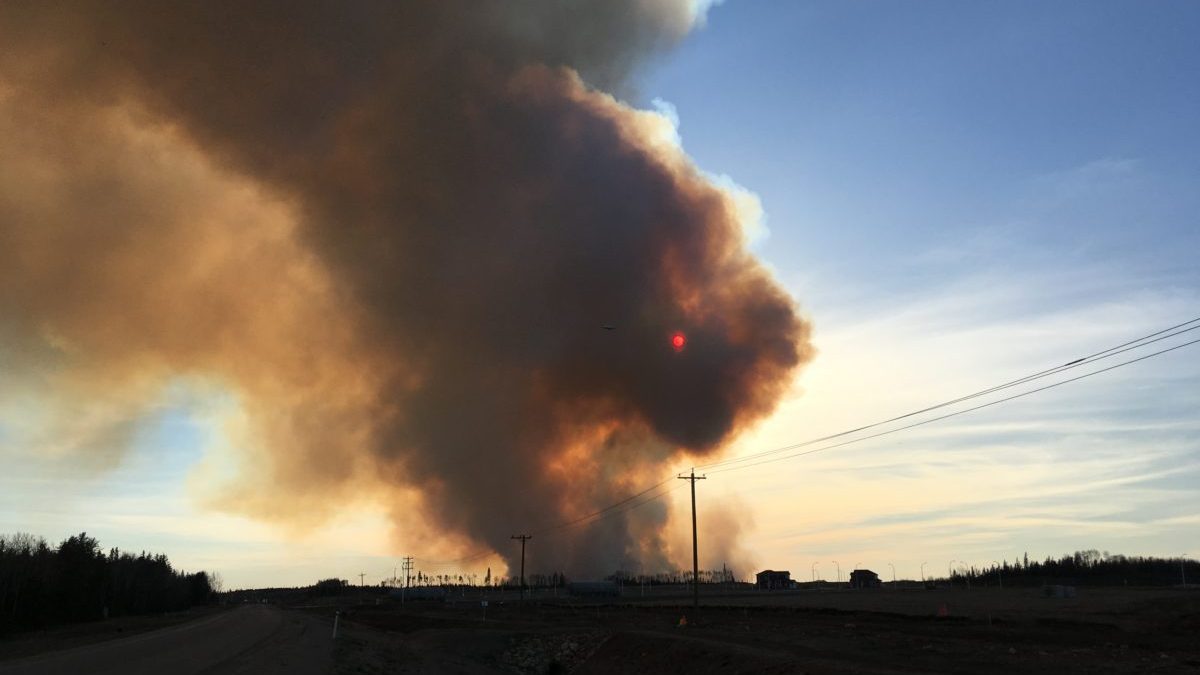 Supplied: Wikipedia User Jason Woodhead
Supplied: Wikipedia User Jason WoodheadAn ominous smoke greeted Edmonton on the morning of August 15, symbolizing the worst pollution in the city’s history. As a result of wildfires engulfing the BC interior, Edmonton had the worst air quality rating of any major city in the world. Besides smoke, numerous environmental records have been broken in Alberta this summer. On August 10, Calgary hit a new all-time record temperature of 36.4 degrees Celsius.
While individual events cannot easily be attributed to climate change, long-term trends can. Hotter, drier summers are making wildfire seasons longer and more extreme. Wildfires, droughts, heat waves, floods, and rising sea levels are all expected to increase in magnitude and duration due to climate change. Decades of evidence has shown that global average temperatures are rising due to human-generated greenhouse gases. Despite speculation from conspiracists, it’s clear that these changes aren’t at all related to sunspots, volcanoes, or the earth’s orbit.
Undeterred by facts, the United Conservative Party continues to deny basic climate science. Recent UCP nominee Randy Kerr speculated that climate change is a “hoax” and that humans may not be responsible for it. In May 2018, UCP leader Jason Kenney asserted that there’s a “legitimate range of perspectives about exactly to what degree” humans are responsible for climate change. Does Kenney also propose we wait to weigh the risk of our house burning before purchasing home insurance, even as an open fire burns inside it?
The UCP’s “alternative facts” about climate change are gross misrepresentations of well-established scientific findings which mislead Albertans about their changing surroundings. As Dr. Katharine Hayhoe, an acclaimed Canadian atmospheric physicist said, the climate does not care about ideology. Instead, “the true threat is the delusion that our opinion of science somehow alters its reality.”
Purely from Albertan self-interest, climate denial is dangerous because we risk falling behind in a decarbonizing world. Having grown increasingly tired of pollution, droughts, and heat waves, 45 countries, collectively representing a quarter of global emissions, have introduced a price on carbon pollution to reward efficient fuel sources. Additionally, 21st-century technologies like electric vehicles and renewable electricity are taking centre-stage globally.
For Alberta, one-tenth of whose GDP is oil and gas revenue, responding to this global energy transition will take meticulous planning. McKinsey predicts worldwide oil demand could decline as early as 2025. With fierce international competitors fighting over a limited market size, Athabasca crude oil already has some of the highest breakeven costs. The same crude is also the world’s highest-emitting oil option, introducing a new climate-related risk. As global emissions reduction accelerates, Alberta oil may be the first to become uncompetitive. This risk is already known by multinational companies like Shell, ExxonMobil, and ConocoPhillips, who pulled out of the oil sands in 2017, citing a long-term focus on being “as economically and environmentally competitive as possible.”
Adapting to these trends may be difficult, but isn’t impossible. Look at the Emissions Reduction Agency’s Oil Sands Innovation Challenge, which uses carbon tax dollars to reward climate-compatible research and development, creating a competitive edge for Albertan oil by reducing both carbon emissions and costs. Similar climate policies can kickstart innovation in strategic sectors like petrochemicals and industrial energy efficiency, diversifying what many politicians call the “Alberta Advantage” to hedge against future uncertainty.
This month’s smoke is a visceral reminder that climate change is impacting not just our environment, but the very fabric of Alberta’s economy. This is a real and serious problem for our leaders to consider and tackle, regardless of ideology. Denial is not an option. Economic planning isn’t a partisan issue; why should climate policy be?




